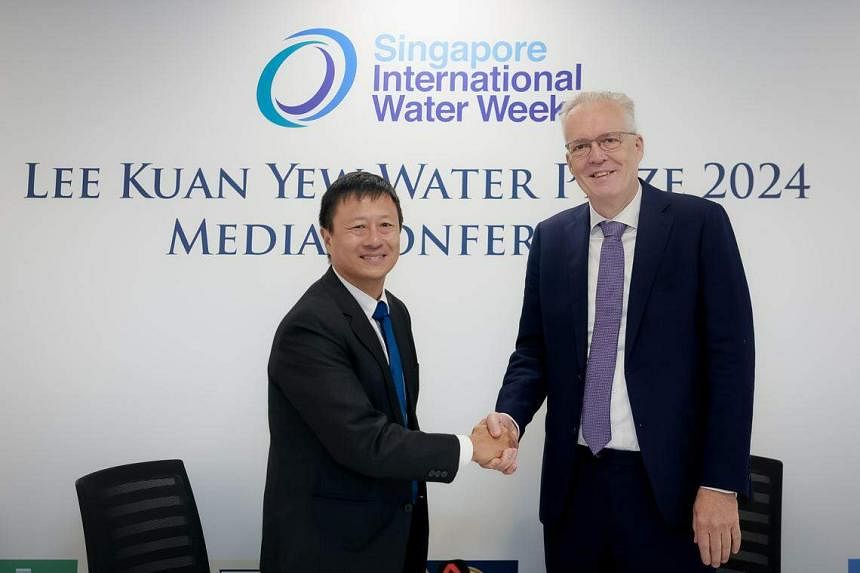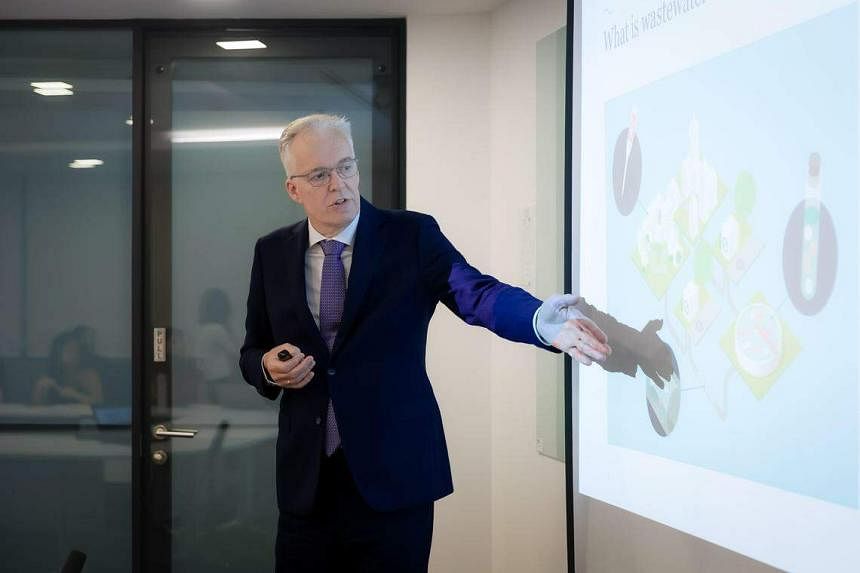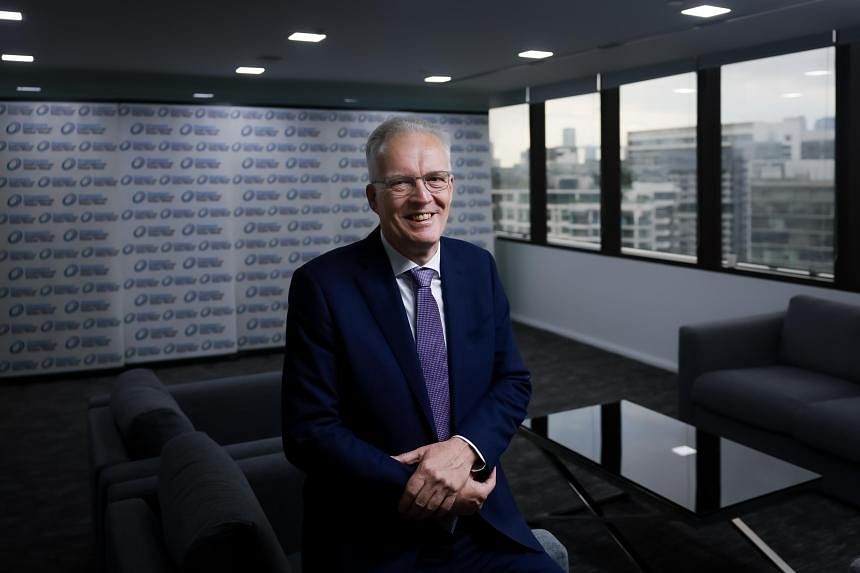SINGAPORE – A Dutch microbiologist whose work pioneered the use of wastewater surveillance to curb the spread of the coronavirus during the Covid-19 pandemic is the recipient of the 2024 Lee Kuan Yew Water Prize, it was announced on April 16.
Professor Gertjan Medema, principal microbiologist at the KWR Water Research Institute in the Netherlands, and his team began collecting wastewater samples across the Netherlands in early 2020 to test for the Sars-CoV-2 virus, recognising the need for early detection and monitoring amid the emergence of Covid-19.
They were able to detect evidence of the virus in the wastewater of several cities even before official reports confirmed its presence in these areas.
Prof Medema’s work was foundational in establishing wastewater-based epidemiology as a tool for public health surveillance during the pandemic. His first publication in the area garnered more than 1,400 citations between 2020 and 2023.
The 62-year-old will receive an award certificate, a gold medallion and a cash prize of $300,000, sponsored by the Temasek Foundation, from President Tharman Shanmugaratnam during an award ceremony on June 18.
He will also deliver a keynote lecture on June 19, as part of Singapore International Water Week 2024.
Prof Medema is the 10th Lee Kuan Yew Water Prize laureate. The prize honours outstanding contributions by individuals or organisations towards solving the world’s water challenges by developing or applying innovative technologies, policies or programmes.
Previous winners include Emeritus Professor Kazuo Yamamoto from the University of Tokyo, who conceptualised the submerged membrane bioreactor technology, an advanced water treatment technology that eventually helped to raise the efficiency of making Newater here.
Prof Medema said wastewater surveillance is a quick, non-invasive and low-cost method of monitoring an outbreak across a broad spectrum of a city’s population, noting that it can also provide early warning signs of the emergence of a virus.
Since 2020, wastewater has been tested for Sars-CoV-2 in at least 72 countries at more than 4,000 reported sites, with Prof Medema himself directly connected to about 30 per cent of these initiatives.
The initial concern was that the coronavirus was waterborne, but this was quickly disproven, he said.
“But we saw that wastewater was a source of information about the virus,” he added.
Singapore was one of the countries that practised wastewater monitoring, with the National Environment Agency’s Environmental Health Institute, national water agency PUB, and others exploring its use as an epidemiological tool and early warning system for outbreaks early in the Covid-19 pandemic.

The Republic’s wastewater sampling network now includes more than 500 sites islandwide, with the surveillance used to monitor Zika transmission, in addition to situational monitoring of Covid-19.
Indeed, Prof Medema pointed to the uses of wastewater surveillance even beyond Covid-19, noting that in the Netherlands, the National Institute for Public Health and the Environment is looking at its use in monitoring diseases such as influenza, measles and hepatitis.
“We can observe the trends of the virus transmission in the community; we can even calculate things like the reproductive efficiency of the virus,” he said.
Efforts have also begun in monitoring wastewater across borders, noted Prof Medema, who advises the World Health Organisation in areas such as microbiological drinking water guidelines and wastewater surveillance, and is an adviser to the European Commission on drinking water directives and water reuse guidelines.

The Global Consortium for Wastewater and Environmental Surveillance for Public Health was launched in March by the European Union’s Health Emergency Preparedness and Response Authority.
It aims to create an international system for the early detection, prevention and monitoring of outbreaks.
Prof Medema added that wastewater surveillance could also extend to monitoring the prevalence of illicit drug use as well as chronic diseases and antimicrobial resistance.
“In clinical surveys, we only see the tip of the iceberg, but in the wastewater, we can see what is happening in the community,” he said.


